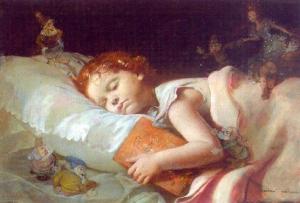| Author: | Ethel May Dell | ISBN: | 9781465627667 |
| Publisher: | Library of Alexandria | Publication: | March 8, 2015 |
| Imprint: | Language: | English |
| Author: | Ethel May Dell |
| ISBN: | 9781465627667 |
| Publisher: | Library of Alexandria |
| Publication: | March 8, 2015 |
| Imprint: | |
| Language: | English |
A great roar of British voices pierced the jewelled curtain of the Indian night. A toast with musical honours was being drunk in the sweltering dining-room of the officers' mess. The enthusiastic hubbub spread far, for every door and window was flung wide. Though the season was yet in its infancy, the heat was intense. Markestan had the reputation in the Indian Army for being one of the hottest corners in the Empire in more senses than one, and Kurrumpore, the military centre, had not been chosen for any especial advantages of climate. So few indeed did it possess in the eyes of Europeans that none ever went there save those whom an inexorable fate compelled. The rickety, wooden bungalows scattered about the cantonment were temporary lodgings, not abiding-places. The women of the community, like migratory birds, dwelt in them for barely four months in the year, flitting with the coming of the pitiless heat to Bhulwana, their little paradise in the Hills. But that was a twenty-four hours' journey away, and the men had to be content with an occasional week's leave from the depths of their inferno, unless, as Tommy Denvers put it, they were lucky enough to go sick, in which case their sojourn in paradise was prolonged, much to the delight of the angels. But on that hot night the annual flitting of the angels had not yet come to pass, and notwithstanding the heat the last dance of the season was to take place at the Club House. The occasion was an exceptional one, as the jovial sounds that issued from the officers' mess-house testified. Round after round of cheers followed the noisy toast, filling the night with the merry uproar that echoed far and wide. A confusion of voices succeeded these; and then by degrees the babel died down, and a single voice made itself heard. It spoke with easy fluency to the evident appreciation of its listeners, and when it ceased there came another hearty cheer. Then with jokes and careless laughter the little company of British officers began to disperse. They came forth in lounging groups on to the steps of the mess-house, the foremost of them—Tommy Denvers—holding the arm of his captain, who suffered the familiarity as he suffered most things, with the utmost indifference. None but Tommy ever attempted to get on familiar terms with Everard Monck. He was essentially a man who stood alone. But the slim, fair-haired young subaltern worshipped him openly and with reason. For Monck it was who, grimly resolute, had pulled him through the worst illness he had ever known, accomplishing by sheer force of will what Ralston, the doctor, had failed to accomplish by any other means. And in consequence and for all time the youngest subaltern in the mess had become Monck's devoted adherent.
A great roar of British voices pierced the jewelled curtain of the Indian night. A toast with musical honours was being drunk in the sweltering dining-room of the officers' mess. The enthusiastic hubbub spread far, for every door and window was flung wide. Though the season was yet in its infancy, the heat was intense. Markestan had the reputation in the Indian Army for being one of the hottest corners in the Empire in more senses than one, and Kurrumpore, the military centre, had not been chosen for any especial advantages of climate. So few indeed did it possess in the eyes of Europeans that none ever went there save those whom an inexorable fate compelled. The rickety, wooden bungalows scattered about the cantonment were temporary lodgings, not abiding-places. The women of the community, like migratory birds, dwelt in them for barely four months in the year, flitting with the coming of the pitiless heat to Bhulwana, their little paradise in the Hills. But that was a twenty-four hours' journey away, and the men had to be content with an occasional week's leave from the depths of their inferno, unless, as Tommy Denvers put it, they were lucky enough to go sick, in which case their sojourn in paradise was prolonged, much to the delight of the angels. But on that hot night the annual flitting of the angels had not yet come to pass, and notwithstanding the heat the last dance of the season was to take place at the Club House. The occasion was an exceptional one, as the jovial sounds that issued from the officers' mess-house testified. Round after round of cheers followed the noisy toast, filling the night with the merry uproar that echoed far and wide. A confusion of voices succeeded these; and then by degrees the babel died down, and a single voice made itself heard. It spoke with easy fluency to the evident appreciation of its listeners, and when it ceased there came another hearty cheer. Then with jokes and careless laughter the little company of British officers began to disperse. They came forth in lounging groups on to the steps of the mess-house, the foremost of them—Tommy Denvers—holding the arm of his captain, who suffered the familiarity as he suffered most things, with the utmost indifference. None but Tommy ever attempted to get on familiar terms with Everard Monck. He was essentially a man who stood alone. But the slim, fair-haired young subaltern worshipped him openly and with reason. For Monck it was who, grimly resolute, had pulled him through the worst illness he had ever known, accomplishing by sheer force of will what Ralston, the doctor, had failed to accomplish by any other means. And in consequence and for all time the youngest subaltern in the mess had become Monck's devoted adherent.















